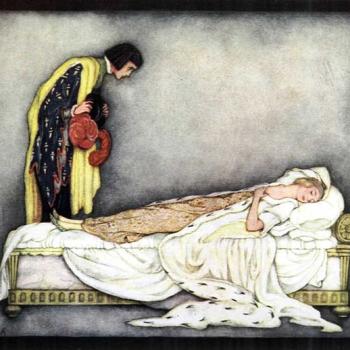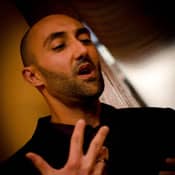The Prophet Muhammad (pbuh) was reported to have said: "The 'Master Prayer' for forgiveness of God is to say:
O God! You are my Lord, there is no god but Thee.
You created me, and I am your servant.
I am keeping my pledge and promise to Thee as best I can.
I seek refuge with Thee from any evil I have wrought.
I acknowledge the blessings Thou hast given me, and I confess my sins.
Thus, forgive me; for truly none forgives sins but Thee.
In these few words contain a profundity of insight into the true relationship one should have with God. For so many years, through so many Friday khutbas (sermons), I have been told to "fear God." Indeed, there are many verses in the Quran that say in Arabic, "Itaqillah," which is translated to mean "Fear God."
But, our Lord is not a tyrant that needs to be feared. A much better translation of that phrase is "Be conscious of God." Yes, we should fear God's punishment, but He himself has said in the Quran that He "has willed upon himself the law of grace and mercy" (6:12). "Fear" gives off a wholly inconsistent connotation with respect to God Almighty.
This "Master Prayer" for forgiveness further emphasizes this point: Our relationship with God should be based on love, not fear.
The prayer begins with an acknowledgement of our eternal indebtedness to the Lord for His giving us the tremendous gift of life. No other being could have given us life besides the Beloved Lord, and thus it is only natural that we are his grateful servants. He did this, by the way, out of tremendous love for us.
In order to truly love Him back, we make a promise to the Lord to be as dutiful and obedient of servants as possible, hence the statement: "I am keeping my pledge and promise to Thee as best I can." Yet, clearly, we are only human and not perfect. This statement acknowledges this fact, and we reaffirm to the Lord that we are trying our best.
"I seek refuge in Thee from any evil I have wrought." Because we are human and not perfect, we are bound to make mistakes, which is why we are asking for forgiveness in the first place. And, the best place to run for protection from the consequences of our wrong actions is back to the Lord Himself.
Then we come to the key phrase of this entire prayer: "I acknowledge the blessings Thou hast given me, and I confess my sins. Thus, forgive me; for truly none forgives sins except Thee."
This is not the statement of a servant cowering in fear before his master. If you have committed a crime in a kingdom and are brought forth before the King for mercy, the best thing to do would be to throw yourself at the King's feet and beg for mercy. This statement, however, does not connote or denote this type of relationship.
Instead, it shows a relationship of mutual love. The love began with the Lord Himself, giving us life when we were dead and further blessing us with free will and the ability to choose to disobey Him. Life and free will are tremendous gifts and blessings with which the Lord has endowed us.
As a result, we love the Lord back, and the cardinal manifestation of this love is to avoid sin as much as possible. But due to the weaknesses of the human condition, being sinless is nearly impossible. This statement—I acknowledge the blessings Thou hast given me, and I confess my sins—shows that if we truly loved God, we would not sin because of all of His blessings.
But, we are human. Thus, we are coming to God and saying: "I know I should have been better to You because You have been so good to me. But . . . I haven't, so please forgive me." This is not someone shaking in fear from an angry Master. This is someone who loves his Master and feels terrible for letting Him down, and he is coming back to make amends.
It is a much better frame of reference with respect to God, and it brings one in nearness to Him even after the stain of sin and disobedience to the Beloved Lord our God. I wish I was taught this type of relationship with God much sooner in my life because I would have been all the better.
But, I am glad that I understand this now, and I am trying to impart this understanding to my children and everyone else with which I am blessed to share my writing. Our God is a Beautiful, Loving Lord who gives us so much even though we have given Him nothing. In fact, we cannot give Him anything He needs, for He is Self-Sufficient.
Yet, He blesses us anyway with His love.
Shouldn't we, at the very least, love Him back by being as good a believer, child, spouse, sibling, worker, and citizen as possible? And, if we make a mistake—which we are bound to do—then He has given us the ability to come back to Him, not shaking in fear, but as a lover asking his Beloved for forgiveness.
What an Awesome God we have indeed.
12/2/2022 9:09:41 PM





